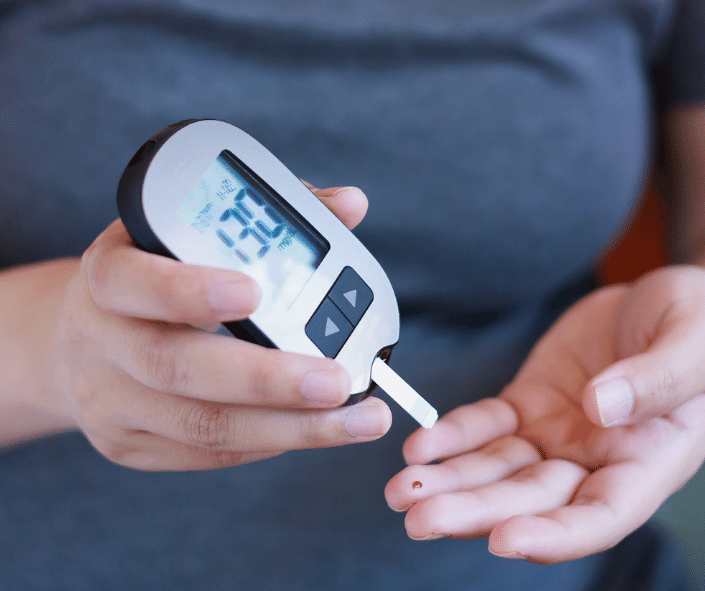Oral Glucose Tolerance Test in Pregnancy

During pregnancy, gestational diabetes, a condition that poses risks for both the mother and the baby, can develop. The Oral Glucose Tolerance Test (OGTT) is a diagnostic test used to assess whether the body efficiently utilizes glucose. So, what is the glucose tolerance test in pregnancy, and how is it conducted?
What is the Glucose Tolerance Test in Pregnancy?
Before delving into the question of “What is the OGTT?” for those curious, it’s essential to understand gestational diabetes. Gestational diabetes is a condition where disruptions in glucose metabolism are identified during pregnancy in individuals without a prior history of diabetes. The OGTT is the test employed to detect this condition. Administered as a 50-gram glucose loading test between the 24th and 28th weeks of pregnancy, the test can be conducted at any time during the day, and fasting status of the expectant mother is irrelevant. The expectant mother is given a solution containing 50 grams of glucose to drink, and one hour later, her blood sugar level is checked. If the level is 140 mg/dL or higher, a 100-gram OGTT is conducted. The definitive diagnosis of gestational diabetes is made three hours after the test. It’s crucial for the expectant mother to avoid intense physical activity and abstain from eating during the process to obtain the most accurate results.
Why is the Glucose Tolerance Test Conducted in Pregnancy? The answer to the question “Why is the OGTT test conducted?” is as follows:
Gestational diabetes is a distinct type of diabetes that emerges after the 24th week of pregnancy. However, it can manifest earlier in some expectant mothers, indicating pre-existing conditions. To precisely determine the situation, the expectant mother undergoes a glucose tolerance test. In essence, the answer to the question “Why is the glucose tolerance test conducted?” is to diagnose gestational diabetes.
When is the Glucose Tolerance Test Administered in Pregnancy? For those wondering “When is the glucose tolerance test conducted?” generally, the test is administered from the 20th week of pregnancy onwards. However, the most appropriate time for the test may vary depending on individual factors. Therefore, in determining the optimal time for the test, certain risk factors are considered. If the expectant mother is over 35, has polycystic ovary syndrome (PCOS), has a history of gestational diabetes in previous pregnancies, delivered large babies in previous pregnancies, has a BMI over 30, or has a family history of diabetes, she is considered high-risk.
At What Weeks is the Glucose Tolerance Test Performed? The answer to the question “At what weeks is the glucose tolerance test performed during pregnancy?” is between the 24th and 28th weeks. If the expectant mother’s blood sugar level is 140 mg/dL or higher during tests conducted within these weeks, a second application of the OGTT is performed with an increased amount of the given solution to confirm the diagnosis.

What Should be Done Before Glucose Tolerance Test? Requirements before the oral glucose tolerance test depend on the loading dose. If the glucose loading test is below 75 grams, i.e., if it is loaded as 50 grams, whether the expectant mother is fasting or not does not matter. A 50-gram glucose loading is performed, and the results are evaluated one hour later. If the result is 130 or higher, the condition is considered suspicious. For 75-gram and 100-gram glucose loading, the expectant mother should fast for 8 hours before the test. Before loading, blood is drawn from the expectant mother, and fasting blood sugar is checked. Then, the expectant mother is given a solution containing 75 or 100 grams of glucose. Blood sugar and OGTT reference range are re-evaluated at 1, 2, and 3 hours, obtaining different blood sugar values for fasting, 1-hour postprandial, 2-hour postprandial, and 3-hour postprandial. Thus, various blood sugar values are obtained.
Is Glucose Tolerance Test Harmful? Those who do not undergo the glucose tolerance test during pregnancy may wonder if this test is harmful. The answer to the question “Is the glucose tolerance test harmful?” is as follows:
The OGTT, or oral glucose tolerance test, is one of the safe screening tests. Considering the potential risks of gestational diabetes, such as the possibility of the baby being born overweight, premature birth, respiratory difficulties in the baby after birth, and the likelihood of the baby developing obesity and diabetes in later stages of life, as well as the possibility of stillbirth, the test is recommended by experts.
How is the Glucose Tolerance Test Administered in Pregnant Women? For those wondering “How is the glucose tolerance test administered?” during pregnancy, the answer to this question is:
For the OGTT during pregnancy, the expectant mother is initially given a liquid containing 50 grams of sugar in 150 ml. If the blood sugar measurement one hour later is below 140 ml, there is no risk. However, if this value is high, the person is subjected to a 75 or 100-gram sugar loading. So how is the 75-gram glucose loading test done? This test is performed by giving the expectant mother a 75-gram sugar loading.
Pregnancy Glucose Tolerance Test Results If you are curious about “What should the result of the pregnancy glucose tolerance test be?” The normal values for the glucose tolerance test during pregnancy are as follows:
The result of the glucose tolerance test may vary slightly. According to this test, the normal values for the OGTT test are:
- Fasting: > 105 mg/dL
- 1 hour postprandial: > 190 mg/dL
- 2 hours postprandial: > 165 mg/dL
- 3 hours postprandial: > 145 mg/dL
Is the Pregnancy Glucose Tolerance Test Done on an Empty Stomach? The answer to the question “Is the glucose tolerance test done on an empty stomach?” varies depending on the type of test to be applied. For a 50-gram sugar loading, an empty stomach is not required. However, if a 75 or 100-gram sugar loading is to be applied, the expectant mother must undergo an 8-hour fasting before the test.
